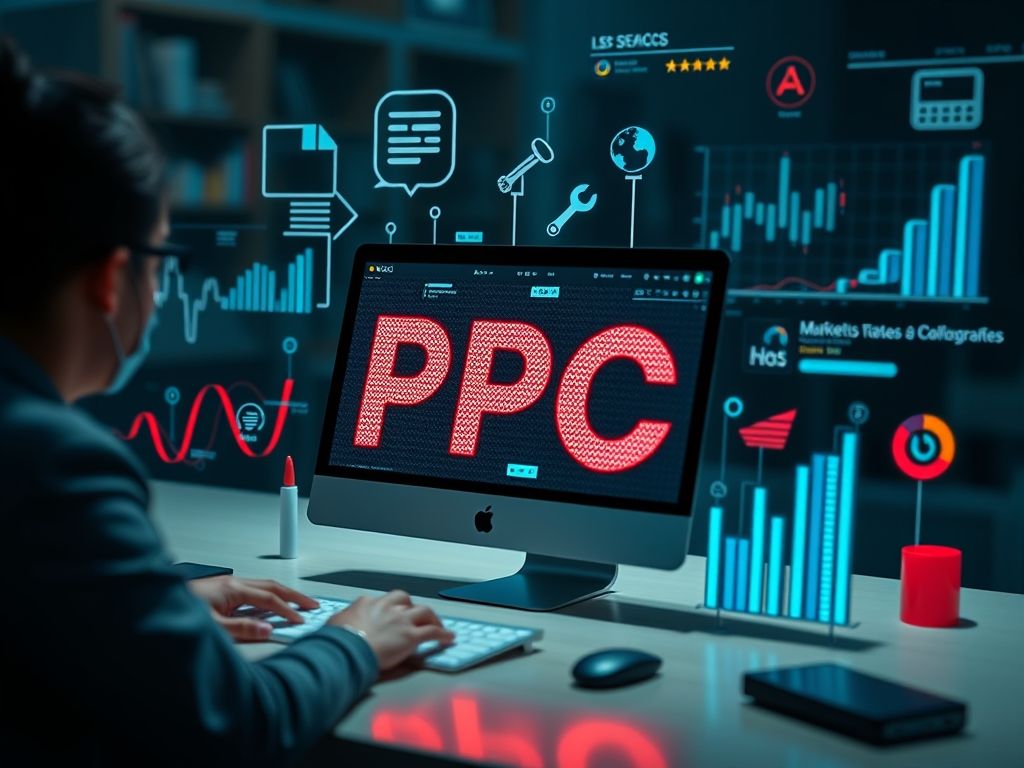What is PPC?
PPC, or Pay-Per-Click, is a digital marketing model where advertisers pay a fee each time their ad is clicked. Essentially, it’s a way of buying visits to your site rather than attempting to “earn” those visits organically. PPC is commonly associated with search engine advertising, where advertisers bid for ad placement in a search engine’s sponsored links when someone searches for a keyword related to their business.
The Importance of PPC in Digital Marketing
PPC has become a cornerstone of modern digital marketing strategies due to its ability to deliver immediate traffic and measurable results. Unlike traditional advertising, PPC allows marketers to track the performance of their ads in real time, making it easier to optimize campaigns based on actionable insights. This means that businesses can quickly adjust their strategies based on data such as click-through rates (CTR) and conversion rates.
Benefits of PPC
- Immediate Results: Unlike SEO, which can take time to generate traffic, PPC campaigns can start driving traffic almost instantly.
- Targeted Advertising: PPC allows for precise targeting based on demographics, location, and even the time of day, ensuring that ads reach the right audience.
- Budget Control: Advertisers can set daily budgets and only pay when users click on their ads, ensuring cost-effectiveness.
- Measurable ROI: The ability to track conversions and revenue from PPC campaigns makes it easier to measure return on investment.
How Does PPC Work?
The PPC model operates primarily through an auction system. Advertisers bid on keywords they believe their target market will enter into search engines. When a user types in a query, the search engine determines which ads to show based on several factors, including the bid amount and the quality of the ads. This is known as the Quality Score, which is influenced by the relevance of the ad, the landing page experience, and the expected CTR.
Components of a Successful PPC Campaign
- Keyword Research: Identifying the right keywords is crucial for the success of any PPC campaign. Tools like Google Keyword Planner can help in finding high-volume, low-competition keywords.
- Ad Copywriting: Crafting compelling ad copy that encourages users to click is essential. The ad should clearly communicate the value proposition and include a strong call to action.
- Landing Page Optimization: The landing page must be relevant to the ad and optimized for conversions to ensure a smooth user experience and maximize ROI.
- Continuous Testing and Optimization: Regularly testing different ad copies, keywords, and landing pages can significantly improve campaign performance.
Practical Applications of PPC
PPC can be utilized in various ways to achieve different marketing goals. Here are a few common applications:
- Brand Awareness: Businesses can use PPC to increase visibility and brand recognition by targeting broad keywords that relate to their industry.
- Lead Generation: Companies often use PPC to drive traffic to landing pages designed specifically to capture leads, offering something of value in exchange for contact information.
- Sales Promotions: Seasonal sales or special promotions can be effectively advertised through PPC to drive immediate traffic and conversions.
- Retargeting: Retargeting campaigns can remind users who have previously visited a website to return and complete a purchase.
Related Concepts
Understanding PPC also involves familiarizing oneself with several related concepts in digital marketing:
- SEO (Search Engine Optimization): While PPC provides immediate results, SEO focuses on organic traffic generation through optimizing website content and structure.
- CPM (Cost Per Mille): A model where advertisers pay for every 1,000 impressions their ad receives, often used in branding campaigns.
- Quality Score: A metric used by search engines to determine the relevance of ads, which influences ad placement and cost.
- Conversion Rate Optimization (CRO): Techniques aimed at increasing the percentage of users who complete desired actions on a website.
Conclusion: Implementing PPC in Your Marketing Strategy
PPC is an invaluable tool for businesses looking to enhance their digital marketing efforts. By understanding the fundamentals of PPC, including how it works, its benefits, and its applications, marketers can leverage this powerful strategy to achieve their goals. Remember that a successful PPC campaign requires continuous monitoring and optimization, but with the right approach, it can yield significant returns and drive growth for businesses.
As you consider implementing PPC in your marketing strategy, think about the specific goals you want to achieve and how you can tailor your campaigns to meet those objectives. Reflect on your audience’s needs and preferences, and don’t hesitate to experiment with different strategies to see what works best for you.









